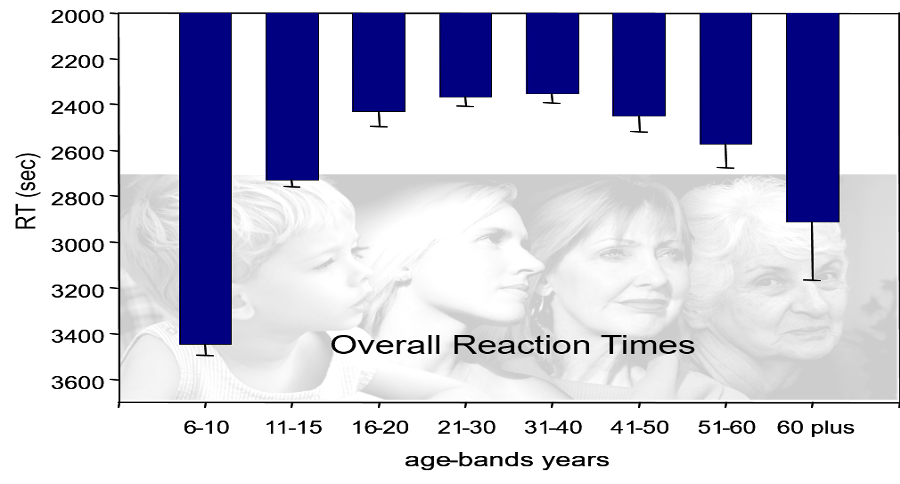Swinburne researchers from the Centre for Human Psychopharmacology have been investigating the biomarkers for cognitive ageing in healthy elderly Australian citizens to examine whether age associated cognitive decline in the healthy elderly could be reduced.
The two main cognitive domains that show age related impairment are episodic memory (long-term memory) and processing speed (i.e. how quickly you can react and make a decision). This figure shows the changes in processing speed with age:

There is relatively little research on understanding the biomarkers of cognition in the 60+ age group. This study seeks to address this deficit.
Data was collected from approximately 500 healthy 60 – 75 year old Australian in November 2019, and approximately 350 participants completed a 12 month intervention through the Australian Research Council Longevity Intervention (ARCLI).
In late 2019, the team’s studies found that interventions that reduce oxidative stress may be important in improving episodic memory as we get older. Researchers also found that higher cholesterol, even in healthy older participants, may be a marker for poorer cognitive performance, and that interventions aimed at reducing cholesterol could improve cognitive performance. In 2020 an intriguing find suggests that having a higher Body Mass Index may increase inflammatory markers leading to poorer cognitive outcomes.
Funding from Hearts and Minds Investments has been critical in supporting these important analyses and the publishing of research examining cognitive in older Australian citizens from the ARCLI team.
To learn more about the research projects being conducted at the Centre for Human Psychopharmacology visit their website here.